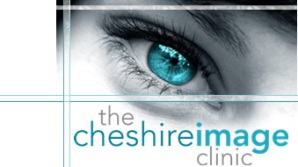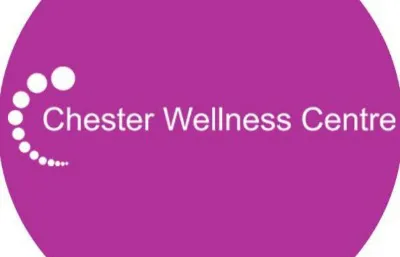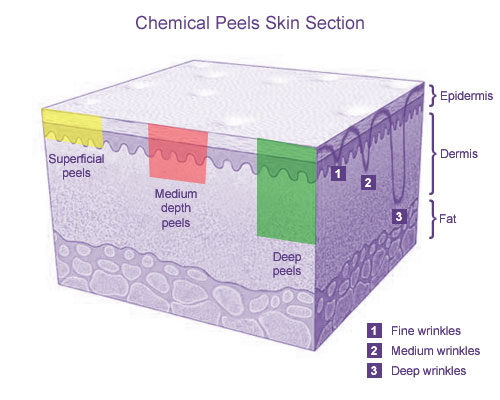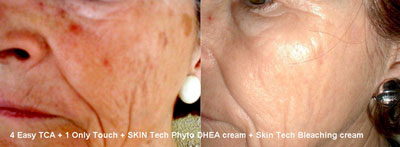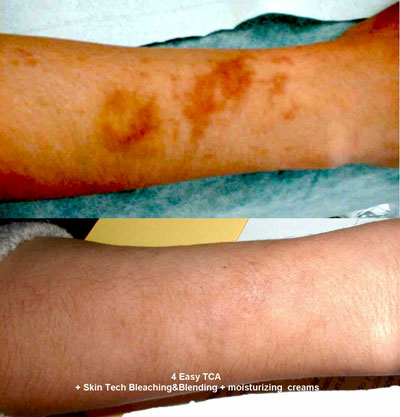As you can probably guess, the depth of peel relates directly to the pain experienced and number of side effects.
SUPERFICIAL PEELS
During the procedure most patients experience a mild stinging sensation whilst the glycolic acid is on the face. The face is often pink after the solution is removed, and there may be a faintish white discoloration in some areas, or a blotchy appearance to the skin that usually fades within a couple of hours. Some patients do not experience any visible peeling off of the skin after treatment, but the treatment still has a beneficial effect, like a very good exfoliation.
Side effects or risks of superficial peels can be hyperpigmentation (too much pigment which causes brown blotches on the skin) and a high factor sunscreen should be applied at all times to help reduce the potential for this problem.
In rare cases, patients may experience an infection in the skin or an out-break of cold sores. This normally only occurs in patients who have a history of such complaints. ( Anti- viral medication may be recommended if such complications occur.)
MEDIUM DEPTH PEELS
The face may swell shortly after the solution has been applied and turn pink, with some burning and stinging of the skin that can last for 30 minutes to an hour following 25% - 35% TCA peels.
Over the next few days, the face may turn a dark brown colour, with streaks of white appearing amongst the brown. The skin will then begin to peel, over a 5 - 6 day period, and may begin to itch during this healing phase. After peeling, the face will be bright red – this will fade to a fresh pink tone in most people over the following 3 - 6 weeks.
Hyperpigmentation or brown spots may occur, even if you follow your doctor’s advice and apply sunscreen before going outdoors. Bleaching creams may be used to help reduce the appearance of these brown areas. Your practitioner will be able to recommend one which is suitable for you.
Redness of the face may also last for longer than 2 - 3 months in some patients; however, this should disappear over time. Very rarely, some patients may develop scarring following a medium depth peel. This can occasionally be permanent, but you should be aware that such a result is extremely unlikely.
DEEP PEELS
Patients often feel unwell for several hours after this procedure. Pain can be moderate to severe for several days but is usually controlled with pain-killing tablets. You would normally need to be driven home following this procedure and only soft and liquid food can be eaten for a few days as chewing can be painful after the peel and it is a good idea not to disturb the face’s skin with vigorous chewing. The swelling of the face is usually at its worse at around 2 days after the procedure, but this will reduce over the following week. Itching can be a problem during the healing process, which may take up to 14 days before you are presentable in public with make up and a concealer to cover the remaining signs of the treatment.
Redness may take 3 - 4 months to disappear, although it may last longer in some patients. Milia (small raised cysts or white spots on the face) usually occur during the first 6 - 8 weeks after peeling, and may last from a few days to many weeks.
Permanent hypopigmentation is the commonest problem associated with deep phenol peels, but it is not common after this treatment. This is a permanent state and it is important to consider this before you have a deep peel if sensitive and particularly obvious areas of the face (such as the mouth) are treated. In such areas, the loss of the pigment, and consequent whitening, of the skin can be very noticeable unless you have very fair skin.
Some patients may also develop hyperpigmentation problems. Again, it is vitally important that the skin is not exposed to the sun without protection to help reduce the likelihood of this problem occurring. Sunscreen with a high protection factor is recommended whenever you go outside and it is important that you stick to a sensible level of protection whenever your face is exposed to the sun.
Scarring can be relatively common immediately after phenol peels (especially if tape is used), and, on occasions, this can be permanent, but mostly, it will heal over time if you follow medical advice.

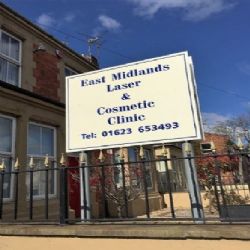
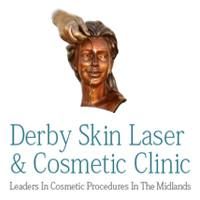
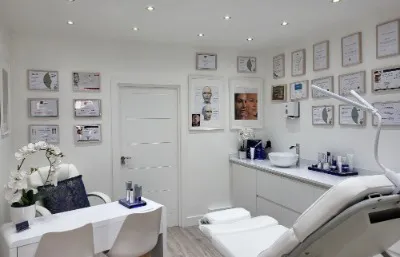
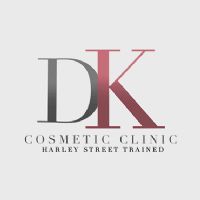


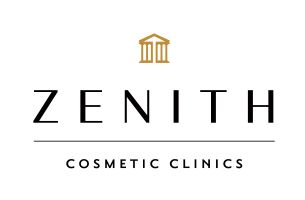
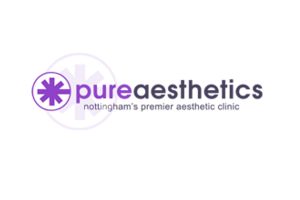
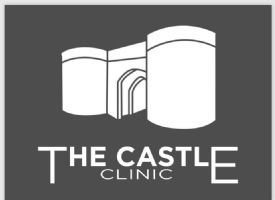


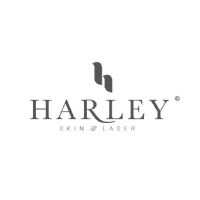


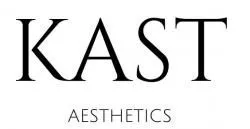
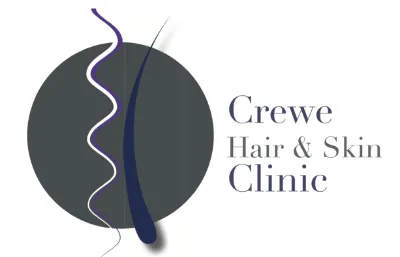



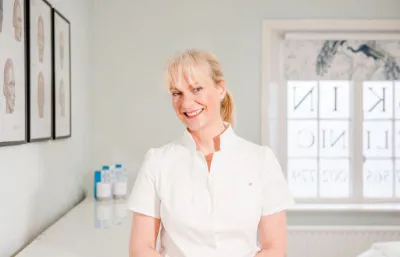
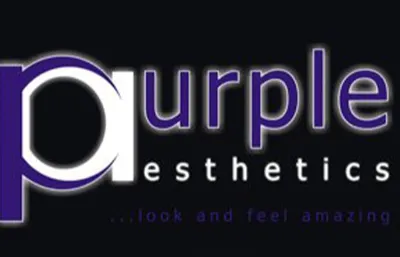
.png)

